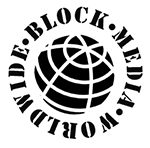 The modern-day job market is fierce with competition, which is why a strong cover letter will help you stand out among the pool of equally qualified candidates vying for your dream job. When you begin the process of job hunting, the single-most important step you can take is to prepare the required written materials. Your up-to-date resume, coupled with an effective cover letter for job application forms, will propel you to the top of the roster.
The modern-day job market is fierce with competition, which is why a strong cover letter will help you stand out among the pool of equally qualified candidates vying for your dream job. When you begin the process of job hunting, the single-most important step you can take is to prepare the required written materials. Your up-to-date resume, coupled with an effective cover letter for job application forms, will propel you to the top of the roster.
What is a cover letter?
The best cover letter is a self-authored document that introduces who you are, what you are seeking in a new position and the strengths you have gained throughout your professional career. If you are job hunting for the first time, a good cover letter sample will shed light on your education, as well as your career goals. Whether you are a seasoned veteran in your field or a new college graduate, this informative document can define your potential candidacy for a new job position.
Why do I need a cover letter?
The resume cover letter combination is an essential component of any job application package, because it gives you, the candidate, a voice. While your resume will accent your job experience, acquired skills and accolades in a list format, your application letter will allow you to expand upon the most notable milestones of your career.
A proper cover letter sample for job application materials can act as a strong sales tool when a potential employer is vetting new candidates. If you deliver an impressive cover letter, you are likelier to land a job interview, which is the next step in the job searching process.
What should I include in my cover letter?
When it comes time to author a good cover letter, you may be wondering what – and what not – to include in this document. A successful 2019 cover letter includes:
- A unique voice – Do not be afraid to insert a dash of personality into your professional cover letter. A unique voice with a strong cover letter opening will captivate the potential employer or HR representative reviewing your materials, and ensures he or she is interested in what you have to say.
- Standout work experiences – If you have a lengthy resume, when writing your job application cover letter, take some time to highlight one or two positions that shaped your career. Discuss your achievements related to the role, as well as the skills and knowledge you have gained while employed.
- Your strengths – Defining your strengths and what you can bring to the table will attract a new company to your work ethics. When you allow a potential hire to see what you can offer, you paint a clear picture of what you can lend to a new position, or to the workplace, as a whole.
- Notable awards – If you have been recognized for your work-related achievements, it is important to highlight these accolades, even in a simple cover letter. Awards let a potential boss know that you go above and beyond the status quo when on the clock.
- Your career goals – Your cover letter should also go into detail about your career goals, and what you hope to gain from this new position. Important goals to note include a position with potential for growth and your interest in branching out from your current specialty. Both of these goals demonstrate that you are seeking a long-term position, as well as to expand your current skillset.
What should not be included in my cover letter?
While a cover letter in 2019 has the potential to go in depth in many areas, there are still some recommendations to consider when it comes to what not to include in this important document. Items you should not focus upon when writing a basic cover letter to land a potential job include:
- Casual or inappropriate language – When learning how to write a cover letter for a job, go the extra mile, and make sure you come off as professional in your cover letter. Use of casual greetings, slangs and distasteful language can quickly cost you the attention of a hiring manager. Additionally, refrain from swear words and inappropriate content that might sabotage your first impression. Even if you are applying through a personal referral, maintaining a professional voice in your cover letter is still of utmost importance.
- Personal information irrelevant to your professional life – Your job letter is no place to tell anecdotes about your life outside of the workplace. Stick to career-driven highlights and tidbits, and leave the stories of your personal life for happy hour – once you are hired.
- Typos – Although unintentional, typos are a surefire turnoff when you apply for a new job position. Make sure you thoroughly review your email cover letter – and resume – prior to submission. A professional proofreader can provide a second opinion, and ensure you are confident in the materials you plan to service.
How can I tailor my cover letter to different job positions?
If you plan to apply for several types of job positions, it is important to tailor your cover letter to each individual job listing. For instance, if you have job experience as a teaching assistant, and as a fast food cashier, you do not need to mention the cashier position if you are applying to be an after-school tutor. On the other hand, if you plan to work the register at a retail store in the mall, your fast food cashier position comes in handy, while your teaching experience does not.
A great way to ensure you are penning an effective cover letter is to author multiple drafts, based on the jobs for which you are applying, and then you will have multiple options available to service, as needed. When creating multiple cover letters, a strong general cover letter core that needs no alteration will require less editing and rewriting.
What if I cannot write my own cover letter?
If you need a job as soon as tomorrow, you may require some professional help in creating a cover letter that will aid in securing work ASAP. Consider hiring a writer with experience in resume and cover letter building. Oftentimes, a professional writer who can craft your resume will offer to write your cover letter, as well. If you choose to hire someone to write your cover letter, make sure to be involved in the process, and request access to the materials prior to finalization.
Tip: While you may decide to work with a headhunter to find a job, make sure that you have approved all materials being transmitted on your behalf. If there is falsified information on your recruitment materials, you not only risk tarnishing your professional reputation, but also remaining out of work.
For more information about cover letters, review the following links:
- How to Write a Cover Letter from Glassdoor.com
- What is a cover letter and why do I need one? from CareerBuilder.com
- How to Write a Cover Letter in 8 Simple Steps from Zety.com
- A Cover Letter is as Important as the Resume from Careerone.com
- Is a cover letter necessary to apply for a job? from TheBalanceCareers.com
Photo by Adeolu Eletu on Unsplash
